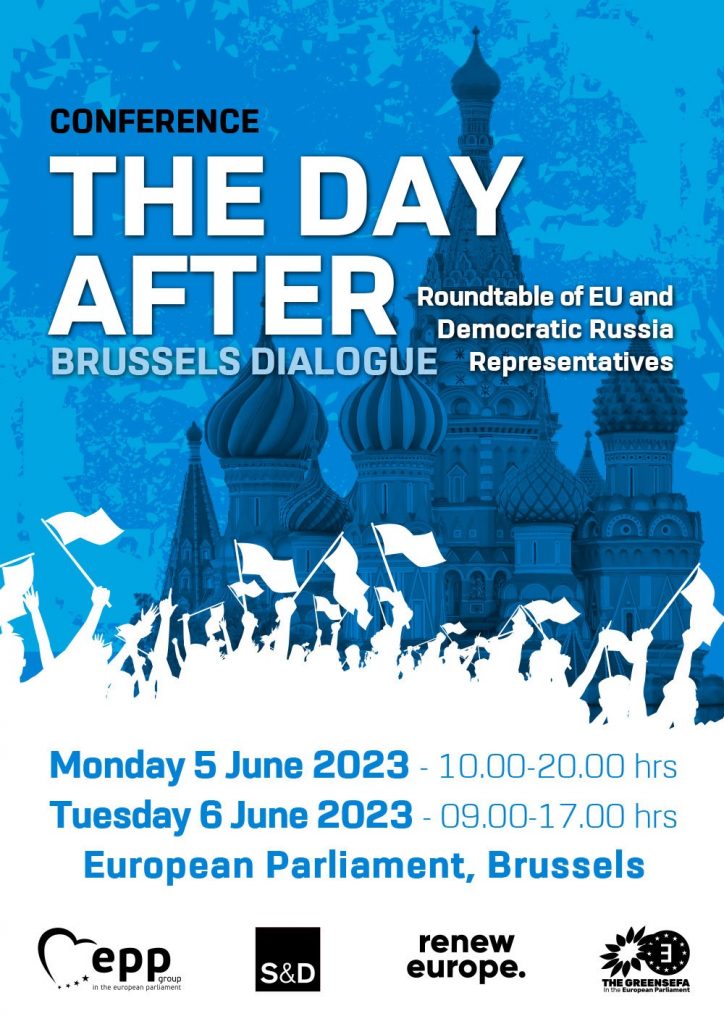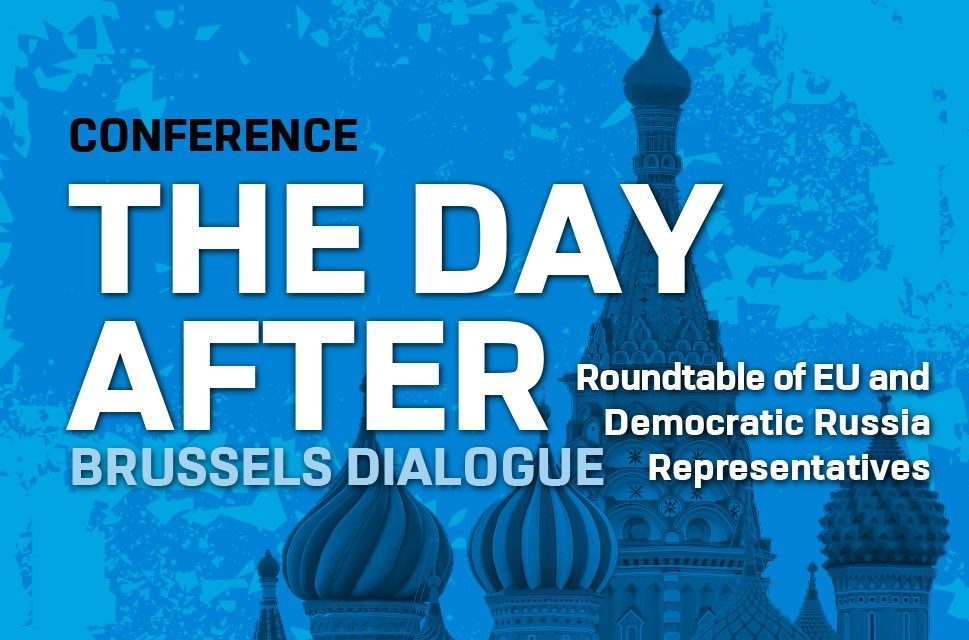Opening speech
Three months ago, it would have been impossible to have that many people in this room speaking… but speaking about what, after all? Speaking about “Post-Putinism”, because this will be our topic.
Let me tell you about my own experience. Three years ago, I wrote, as a member of this Parliament, an “Address”, an open letter to the Russian people. I was saying in this text that as a member of this parliament, the Parliament of a democratic and peaceful Union, we needed to reach out to the Russian people, directly, forgetting Mr Putin. I was regarded almost as a fool, and without the support of my fellow rapporteurs on Russia in this parliament, I would have been rather lonely. Putin was supposed to be immortal. But look at this room. It’s no longer the case.
We talk about “Post-Putinism” because his reign is crumbling and actually came to an end.
Why am I so sure of this? Because when a dictator loses a war, he loses power. Putin is losing the war because he did not win in ten days. And if his power were not crumbling in front of our eyes, Mr Prigozhin wouldn’t be speaking about the next Russian revolution.
Pryviet Vam! Bienvenu a tous!

Speech at the panel “Strategy of the Russian opposition”
Let’s face the reality. It is not being too optimistic to say that you could be in charge of Russia in two or three years or even sooner. It is a real possibility. And therefore, we have to discuss during these two days how you could prepare yourselves to face this enormous task of rebuilding Russia.
It is rather arrogant to give you advice, but I would like to put on the table three ideas to be discussed.
First: in order to avoid a civil war and a new, very long “smutnoye vremye”, “a time of trouble” in your country, you will need to find a political alliance with the most clear-headed individuals from the establishment – both among siloviki and oligarchs. You have to find the people who will facilitate the eviction and the condemnation of Putin and others responsible for war crimes. You have to find the people who are clearly aware that Mr Putin is leading your country to a complete catastrophe.
So, beyond the obvious huge differences, we should reflect on two historical examples of peaceful transition: Spain and Poland. The Spanish democrats needed the less unpalatable people of the fascist regime to avoid civil war. They had to accept a few years of transition between fascism and democracy. This transition was so successful, that my friend Adam Michnik, returning from Madrid, borrowed the idea of self-limiting revolution, a concept almost immediately understood by the elite and the population. Using this idea, Poland became a democracy almost six months before the fall of the Berlin Wall.
Second: you should at the same time engage in dialogue with Ukraine and the European Union on the conditions for lasting peace the continent. It is vital that you do so, as you will need to obtain the support of the EU as soon as you get to the political power. We offered a hand more than a year ago in our “Address to the Russian people”, signed by the leaders of the biggest political groups in the European Parliament and myself, but we did not get a reply. Maybe it is the time for you to think about it.
Third: As we know: two Russians, three political parties, but you are in a very special moment and therefore a certain degree of unification and cooperation is needed. The fact that you are all here is definitely a good sign, but we need more. We need a common programme for your citizens, like the one the National Council of the French Resistance prepared for France. I am sure we will discuss the fundaments of this programme later today and tomorrow.
The 1990s was the time of the shock therapy and we know how it ended. There should be a political balance between capital and labour in your programme. Keynes is back. And all of us should keep it in mind.
I would like to end with one more message. The leaders of your nation are committing horrible crimes in Ukraine, killing thousands of people and hurting millions, but the fact that you are here means that you want to change this. I am sure of that because I used to live in Moscow during the time of the perestroika and I remember the enthusiasm of people towards the newborn freedom. Ukraine will defeat Putin. You will overcome his regime. You will create a democratic Russia, a non-imperial one and with this new Russia we will build a continent of peace and freedom.
Speech at the working dinner
Dear Friends,
Until our last days, we will be proud of what we did today, not because it would immediately put an end to Putin, or to the war. We will be proud of ourselves for bringing together the Russian opposition and the European Parliament, a Parliament representing 450 million European citizens.
I’m sorry for repeating myself, but three months ago this would not have been possible, because three months ago Putin was still supposed to be politically immortal, and not weaker and weaker. Three months ago it would have been inconceivable to discuss what post-Putinism would mean. But now it’s obvious not only for us, but also for journalists and experts. It’s clear for everyone that Putin’s regime is coming to an end. We will be proud and rightly so for having attended the meeting of “The Day After”.
Nevertheless, beyond this pride, beyond these reasons of rejoicing, I would like to underline a lack in our discussion. We didn’t speak about the political and social expectations of the Russian people. It’s obviously necessary and expected to say that when the opposition will be in charge, Russia will have to pay indemnities for the war crimes and leave the Donbass and Crimea, but you can’t win the support of the country without speaking about the difficulties of the Russian population.
I’m sorry for being so trivial, but some of the poor people in Russia are extremely poor, beyond the imagination of the citizens of Western countries, while the rich people are extremely rich, also beyond the Western imagination. The discrepancy is huge. As in every country nowadays, people in Russia expect a minimal kind of social protection and fairness. The Russian opposition won’t be able to mobilise the Russians without caring about that and without promising to be fairer, less greedy, more efficient, and less corrupt than this regime. The Russian people expect honesty and dignity and the democratic government would have to give them dignity and honesty.
Somebody asked the members of my panel this morning: “What do you expect from the Russian opposition?” I would wish the Russian opposition to answer the expectations of the Russian people, and thereby to become a strong power, providing peace and stability not only in Russia, but helping to provide it to the whole continent.



